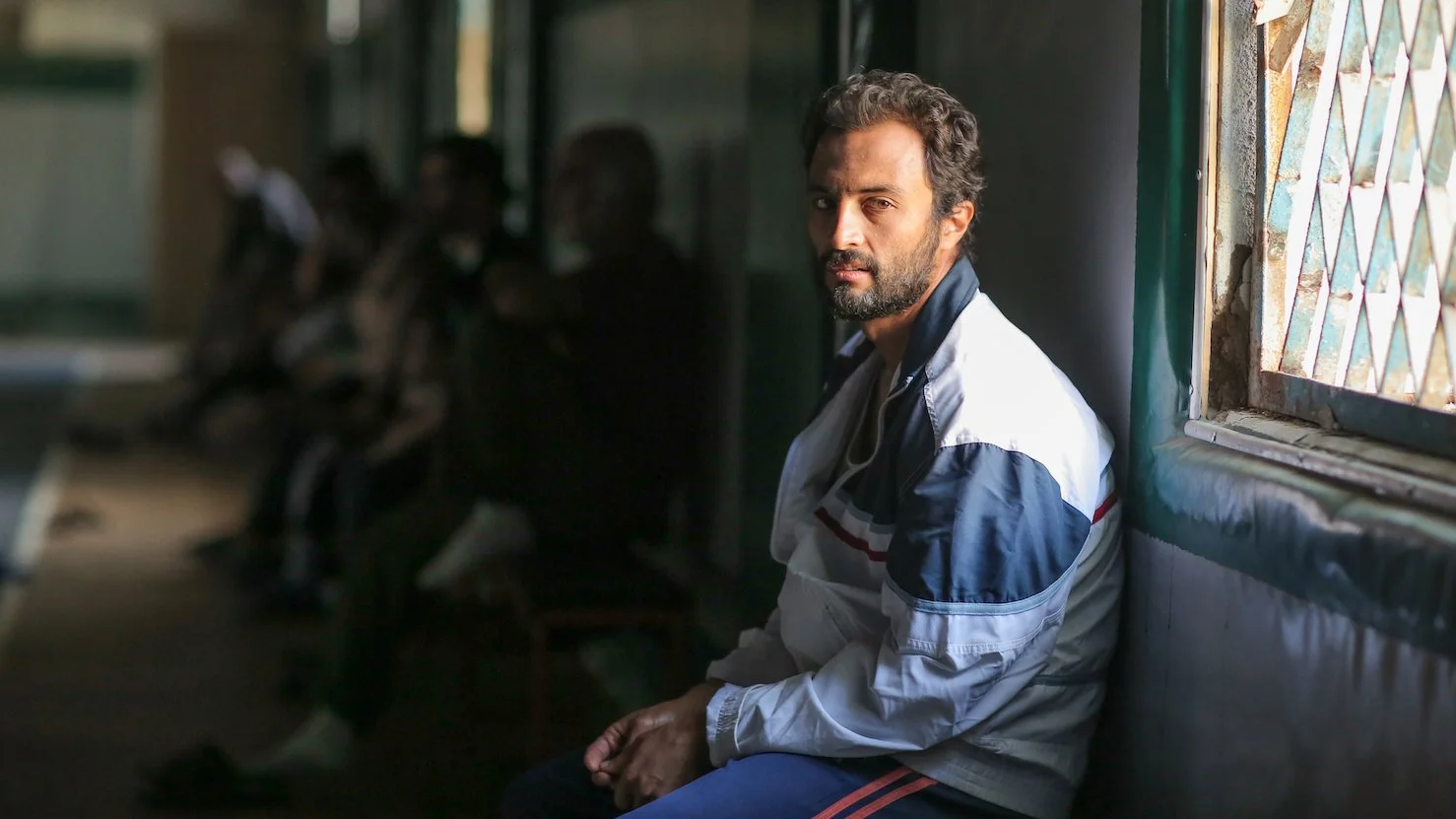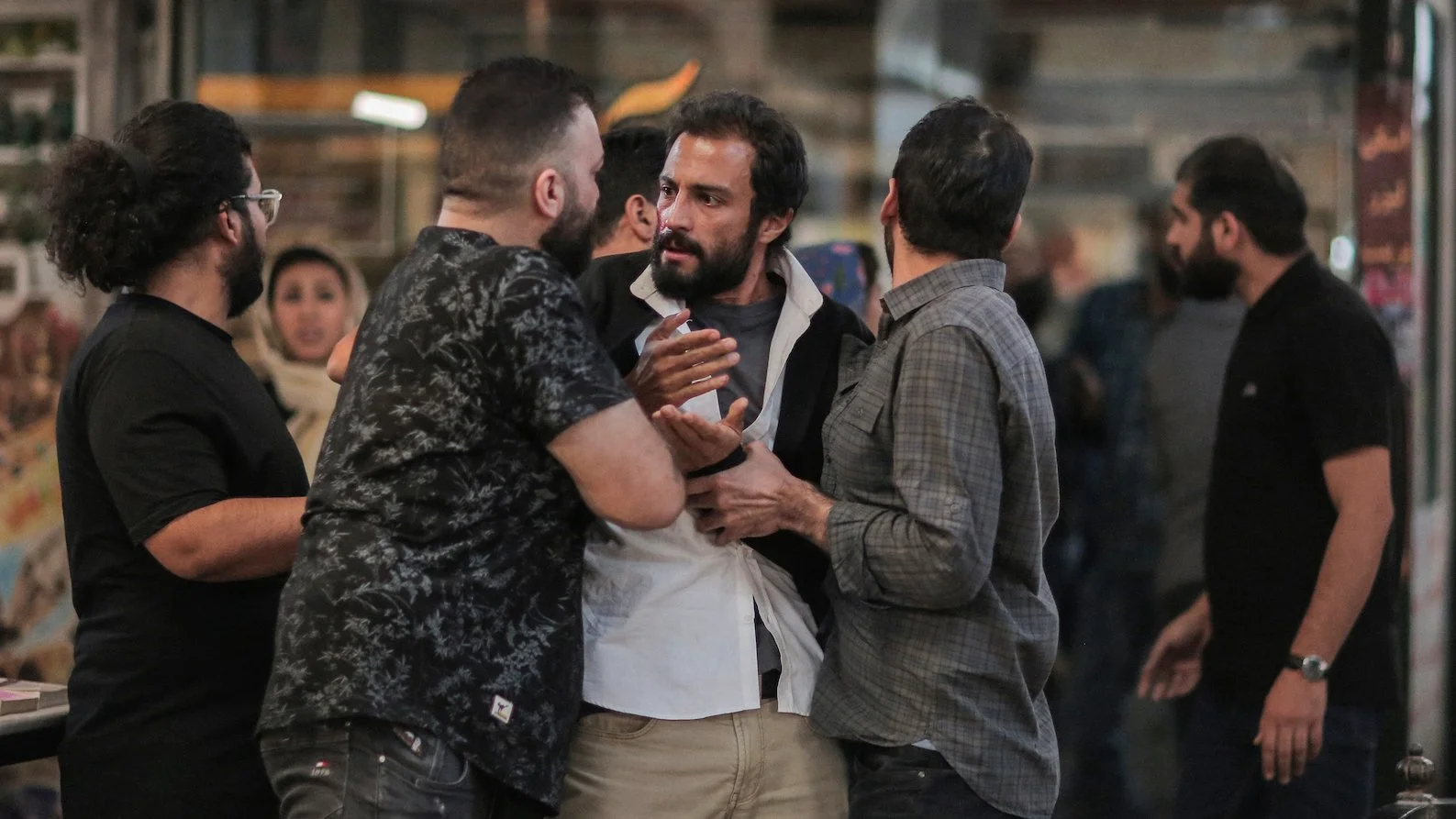The Trouble with Truth
Asghar Farhadi returns to his native Iran for a (now) ironically layered morality tale about truth, justice, social media and class.
A hero
Director: Asghar Farhadi • Writer: Asghar Farhadi
Starring: Amir Jadidi, Mohsen Tanabandeh, Sahar Goldoos, Fereshteh Sadr Orafaie, Sarina Farhadi, Alireza Jahandideh
Iran / France • 2hrs 7mins
Opens Hong Kong May 19 • IIA
Grade: B+
When A Hero took Cannes by storm in 2021 there were no elephants in any rooms, anywhere. Director Asghar Farhadi was a festival darling and a constant contender for a Palme d’Or (and whose films are usually, you know, interesting, unlike other Cannes darlings such as Naomi Kawase. Zzzzz…), and this latest was something of a return to form after the Spanish-language experiment Everybody Knows in 2018. It dealt in themes Farhadi loves to dissect: class structures, retrograde cultural norms, and morality. A Hero might not rank with A Separation or The Salesman among his best, but it comes very, very close.
But A Hero is loosely based on a true story, which documentary filmmaker and one-time Farhadi student Azadeh Masihzadeh made a film about (All Winners, All Losers in 2015), and then alleged Farhadi stole after asking her to sign a waiver in 2019 stating the idea for the doc/story was his. Since then, the lawsuits have flown, as have accusations of defamation, various court judgments and on and on and on. Farhadi maintains his innocnece, and did so most recently at … Cannes! It’s an ugly situtation, but it doesn’t make A Hero any less a masterful film.
Though technically still an inmate at a debtor’s prison, which evidently still exist in Iran, our, erm, hero Rahim (Amir Jadidi, a natural movie star turning in a gorgeously nuanced, quietly desperate performance) gets out on a two-day pass, and while hanging out, his girlfriend Farkhondeh (Sahar Goldoost) finds a bag of gold coins. The mechanics aren’t important. What’s important is that Rahim and Farkhondeh see this as his ticket to paying off his debt and getting out of jail. His debtor is also his former father-in-law, Bahram (Mohsen Tanabandeh), who is big mad about the money he’s owed, and refuses to forgive the debt, the only other way Iranian law will let Rahim out of the clink. The gold’s not worth enough to cover his debt, so Rahim decides to find the owner and return it, hoping for a good samaritan payout – either in cash or public good will that will force Bahram’s hand. What follows is almost farcical. Rahim’s series of truths, half-truths, subjective factoids and outright lies first make him a media star, a hero to his son Siavash (Saleh Karimaei), then a social media mystery to be solved and finally public enemy number one. A lying liar who lies.
Watching the fundamentally decent Rahim dig his own grave is heartbreaking, and somehow pre-destined. In Farhadi’s world, what’s “right” and whether one should actually “do right” sit at opposite ends of the moral spectrum. Never has the credo “No good deed goes unpunished” been more vivid than in A Hero. Of course, Rahim’s bungled attempts at public adoration would be more tragic if Farhadi weren’t such a keen observer of human nature. Time and again during the course of the film Rahim demonstrates his share of personality flaws that make him less than heroic. But then again, Bahram’s unbending dickery isn’t entirely unfounded. Things just aren’t that clear cut; they never are. And there’s plenty of scorn to go around. The jailers, so-called charity groups, old and new media and progressive employers all get their proverbial feet put to the flame as Farhadi scorches their inherent opportunism at the expense of the working class. Farhadi isn’t out to make any grand statements or reveal anything new about human nature in A Hero. The unadorned, ground level camera work telegraphs the essential nature of the story, as does the downbeat finale. This is the way we roll. Shudder. DEK



